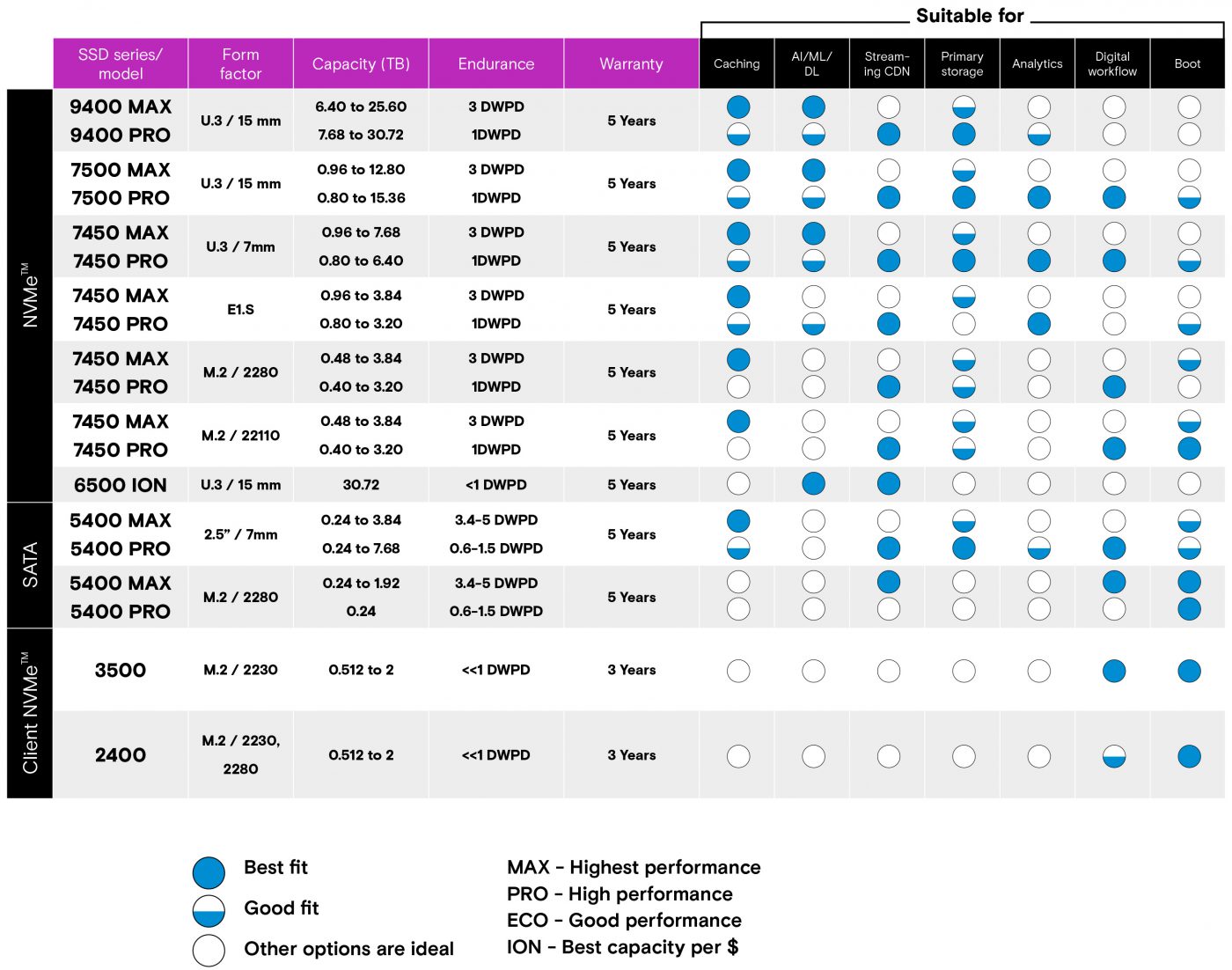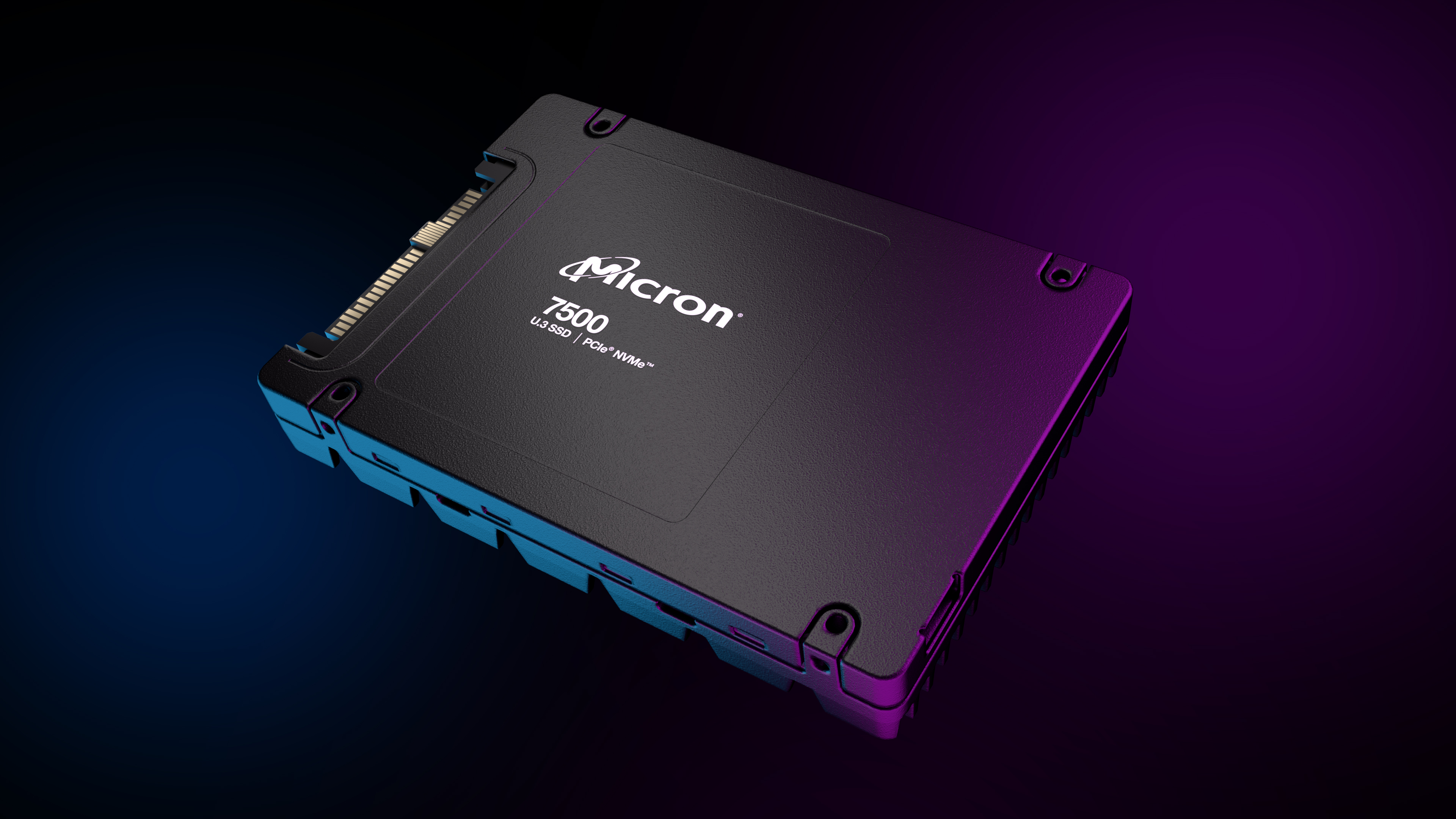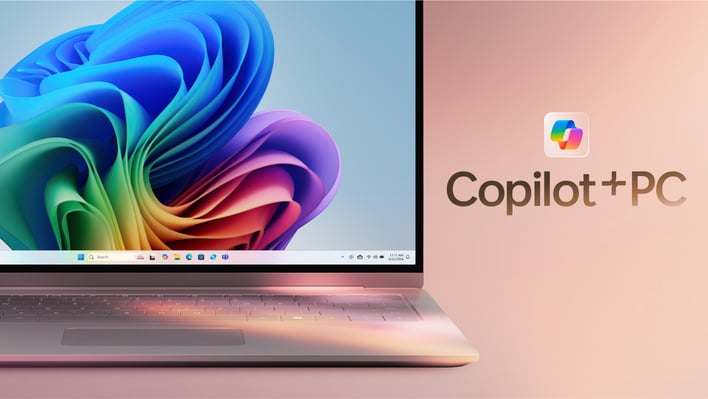For those of you comparing Client SSD vs Enterprise SSD, it’s important to understand the difference before making an important decision.
A cavalier approach to moving, ingesting, analyzing and storing your precious data resource is not an option. Data must be treated like the valuable commodity that it is to grow your business and outpace your competition. This is truer than ever in an age where training AI models can mean the difference between success and being left behind.
Client SSDs (for example Micron 3500 NVMe SSD) can appear to be a more cost-effective choice when compared to enterprise SSDs (for example Micron 7450 NVMe SSD), but they are not designed for mission-critical business workloads. Savings today can result in lost data, slow analytics and lost business tomorrow.
Client SSD vs Enterprise SSD – Which is Best?
Enterprise SSDs clearly outpace client SSDs:
- Enterprise storage IOPS (Input/Output Operations Per Second) can be 1X to 10X better than client SSDs, and their stated performance is measured differently. While enterprise SSDs state their performance as “steady state” (a concept documented by the Storage Networking Association (SNIA) in their public document “Solid State Storage (SSS) Performance Test Specification” and also describe in the Micron brief “Best Practices for SSD Performance Measurement”) – a state where SSD performance is constant, client SSDs measure their performance in the “fresh out of box” (FOB) state in which SSD performance aligns to typical individual customer’s use of an SSD.
- Client SSD throughput – a critical benchmark for your business operations – drops with constant write traffic, making them sluggish compared to enterprise storage solutions
- Enterprise storage endurance is vastly superior to client SSD endurance, mainly due to the workloads used to define TBW (Total Bytes Written) and (Drive Writes Per Day). While client SSDs use a workload that mimics the typical storage usage of an end user, the enterprise workload is typically a 4K block random write – one of the most strenuous workloads an SSD can encounter.
- Reliability on enterprise SSDs, typically measured in MTBF (Mean Time Between Failures), can reach 3 million hours, while client SSDs are typically 1.5 million hours.
- Enterprise SSD capacity can be significantly greater than typical client SSD storage. This higher per SSD capacity can help build denser storage in the data center.
This is only a partial list, but the choice for your business is clear. Your mission-critical data cannot be trusted on anything but purpose-built enterprise SSDs that are engineered for demanding workloads.
Configure now on our Workstation Class Desktops.

**Footnote – Enterprise latency can be as much as 10x better than client SSDs
This content was written by the expert Velocity Micro staff.







